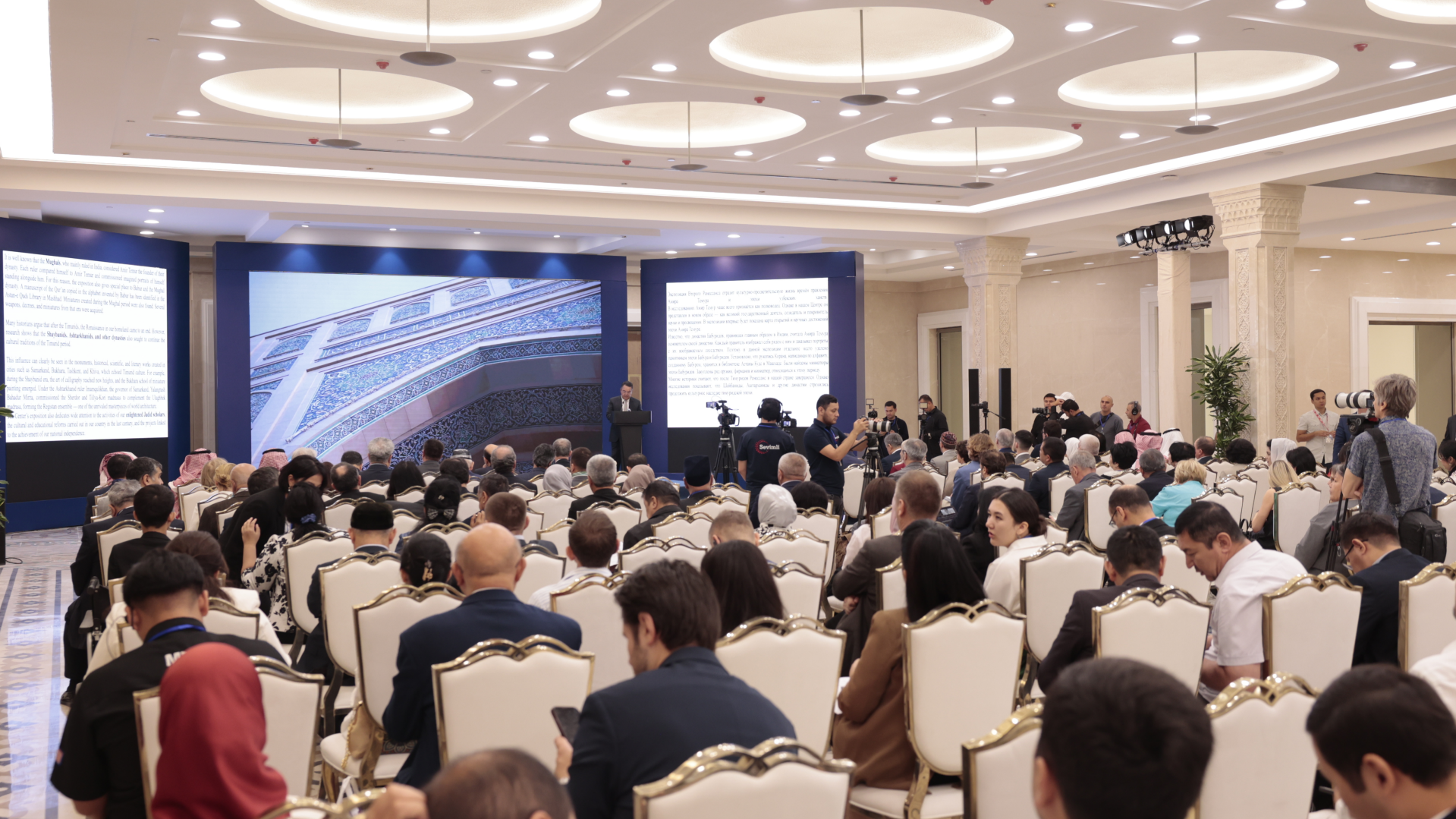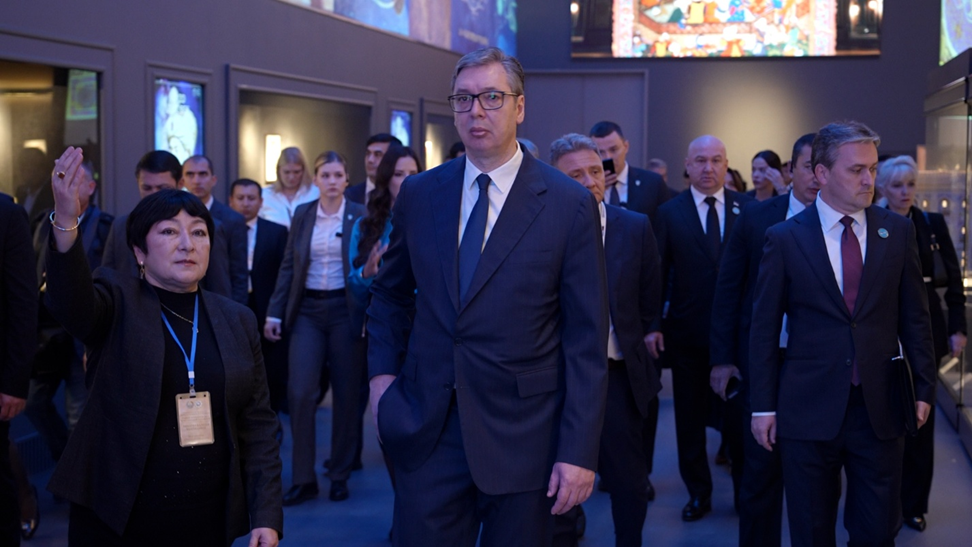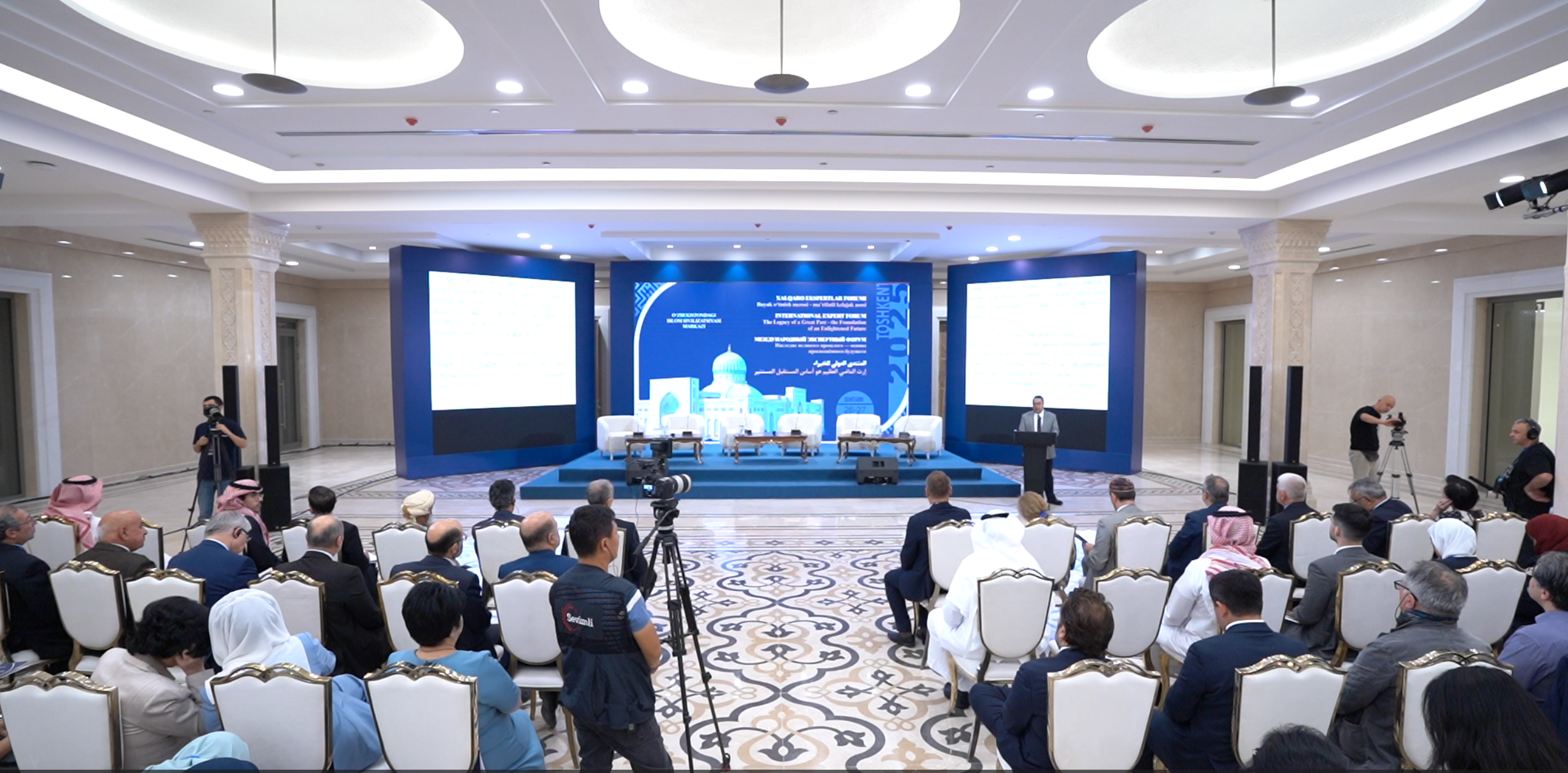A stone thrown at Navoi awakens every Uzbek (doesn’t it?)
🔴 The risk of losing history and memory
🔴 Disrespect or reconstruction?

Recently, reports spread across social media and news outlets that the monument to the great thinker Alisher Navoi in neighboring Afghanistan had been completely demolished. Soon after, the Ministry of Foreign Affairs of the Republic of Uzbekistan contacted the Afghan government regarding the matter and issued a statement confirming that the situation was under control.
It was noted that this act by the Taliban provoked anger among a number of intellectuals and politicians. According to them, the Taliban are not only ignoring the spiritual values of other nations and the historical pride of humanity, but also effectively engaged in erasing and demeaning the country’s cultural and historical identity.
Furthermore, on August 20, Uzbek activists in Afghanistan condemned this act of the interim government, releasing a statement. Prepared by nearly 20 public organizations, the statement described the demolition of Alisher Navoi’s monument as “an attack on the collective memory of the people and the spiritual reputation of Afghanistan”. It called upon the international community, cultural institutions, and human rights defenders to take immediate action to protect the historical and cultural heritage of the peoples of Afghanistan.
It is known that this bas-relief monument of Alisher Navoi was installed in 2008 by the city authorities of Mazar-i-Sharif to honor his memory. In December 2020, an Uzbek delegation visited Afghanistan to discuss the restoration of Navoi’s mausoleum in Herat. In May 2021, a group of Uzbek intellectuals visited the mausoleum of the great thinker and participated in an international conference dedicated to the poet’s work.
On August 15, 2021, Afghanistan came under the control of the Taliban movement. Four years have passed, yet the international community has been reluctant to recognize the country’s new government. Nevertheless, Uzbekistan has continued efforts to develop comprehensive relations with its neighbor. Particular attention has been given to Afghanistan’s reconstruction, with humanitarian aid delivered periodically. On the international stage, Uzbekistan’s leadership has consistently put forward proposals to ensure peace and security in Afghanistan and to provide assistance in various fields.
Looking back at history, Afghanistan formed a significant part of Uzbek statehood under the Ghaznavids, Khwarazmshahs, Timurids, Shaybanids, and other Turkic dynasties. Great construction projects were undertaken here under Amir Temur, Shahrukh Mirza, Husayn Bayqara, and Alisher Navoi. Today, Uzbeks constitute a considerable portion of Afghanistan’s population, and Uzbek is the third most widely spoken language in the country. Reports indicate that more than eight million Uzbeks currently live there. Mazar-i-Sharif is the center of Balkh, one of the eight provinces where Uzbeks live in large numbers.
According to tradition, due to certain circumstances, the remains of the fourth Caliph Ali ibn Abi Talib (r.a.) were moved here and reburied by his supporters to protect them from desecration in Najaf, Iraq. Later, a mausoleum was erected over the new grave during the reign of Seljuk ruler Sultan Sanjar, becoming the city’s largest architectural monument. During the Timurid era, on the initiative of Sultan Husayn Bayqara, the complex was expanded, and a grand mosque was built. Later, this complex became popularly known as the Blue Mosque and has since become the hallmark of Mazar-i-Sharif. Navoi’s brother, Darvesh Ali, ruled Balkh province for some time. Navoi himself visited Balkh and its surrounding cities and districts several times, contributing to their development.
Herat and many cities of Khorasan are given special praise in Navoi’s works. For example, in his poem Hayrat al-Abrar, there is a dedicated chapter extolling Herat, in which Navoi declares his love for his native city and states he would not exchange it for the most beautiful cities of the world. Throughout his life, Alisher Navoi ordered the construction of more than 300 different buildings in Herat and other cities of Khorasan. Most of them have survived to this day, though some were destroyed during Afghanistan’s civil wars.
Indeed, not only in Balkh and its center Mazar-i-Sharif, but throughout Afghanistan, Alisher Navoi deserves every measure of respect and recognition.

The incident in Mazar-i-Sharif can indeed be regarded as an injustice toward the image of Alisher Navoi.
According to the statement of the Ministry of Foreign Affairs of Uzbekistan, in order to obtain an official explanation regarding the issue, contact was made with representatives of the Taliban’s interim government. In response, the Afghan authorities stated that the place where the statue of Alisher Navoi had been erected was not deemed sufficiently worthy of the memory of the great scholar. They explained that the monument was dismantled by the local authorities with the intention of building a more splendid complex for the poet and thinker. At the same time, those responsible for the demolition had not coordinated the decision with the Ministry of Culture and Information of Afghanistan or with the wider public. Furthermore, Afghan officials affirmed that Alisher Navoi’s memory, which is revered not only by Uzbekistan but also by the Afghan people, would be honored appropriately, promising to erect a special new monument dedicated to the great poet and thinker.
The report continued:
“Afghan representatives announced plans to improve the area, restore inscriptions related to the poet’s life and creative legacy, construct a new monument in accordance with current resolutions, and name the square after Alisher Navoi. The Afghan side emphasized its firm commitment to preserving the memory of the great thinker who is equally cherished across the region, and assured that all necessary measures would be taken to honor his name with dignity”.
Of course, improving relations with our southern neighbor, Afghanistan, is of great importance for both sides. Uzbekistan continues to provide comprehensive support to the new Afghan government and people. Therefore, it is essential that the leadership of our country remain promptly informed of such unpleasant incidents and ensure that no disrespect is shown toward the memory of the great enlighteners of the Uzbek nation.
Rustam Jabborov
P/S: At the time of writing, news appeared on internet platforms that Afghan officials have begun restoring the Alisher Navoi monument in Mazar-i-Sharif. We will continue to monitor the developments.
Most read

Over 100 experts from more than 20 countries of the world are in Tashkent!

President of Serbia Aleksandar Vučić visited the Islamic Civilization Center in Uzbekistan

The Center for Islamic Civilization – a global platform leading towards enlightenment











